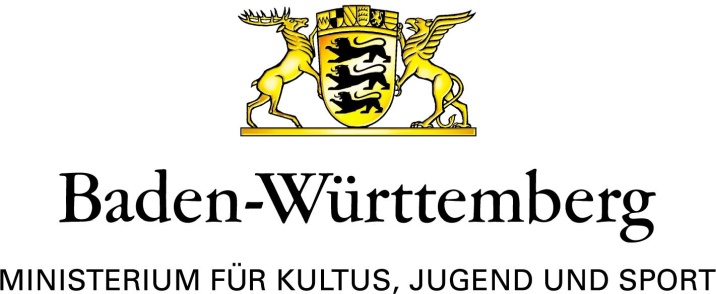
Welcome to the press section
Why highly gifted children often go unrecognized
A new study shows that girls and children from socioeconomically disadvantaged families are frequently being underestimated. In her interview with the online magazine schulmanagement, junior professor Jessika Golle provides insights into key factors that teachers can take into account in adequately assessing children’s giftedness. The interview is available in German only.
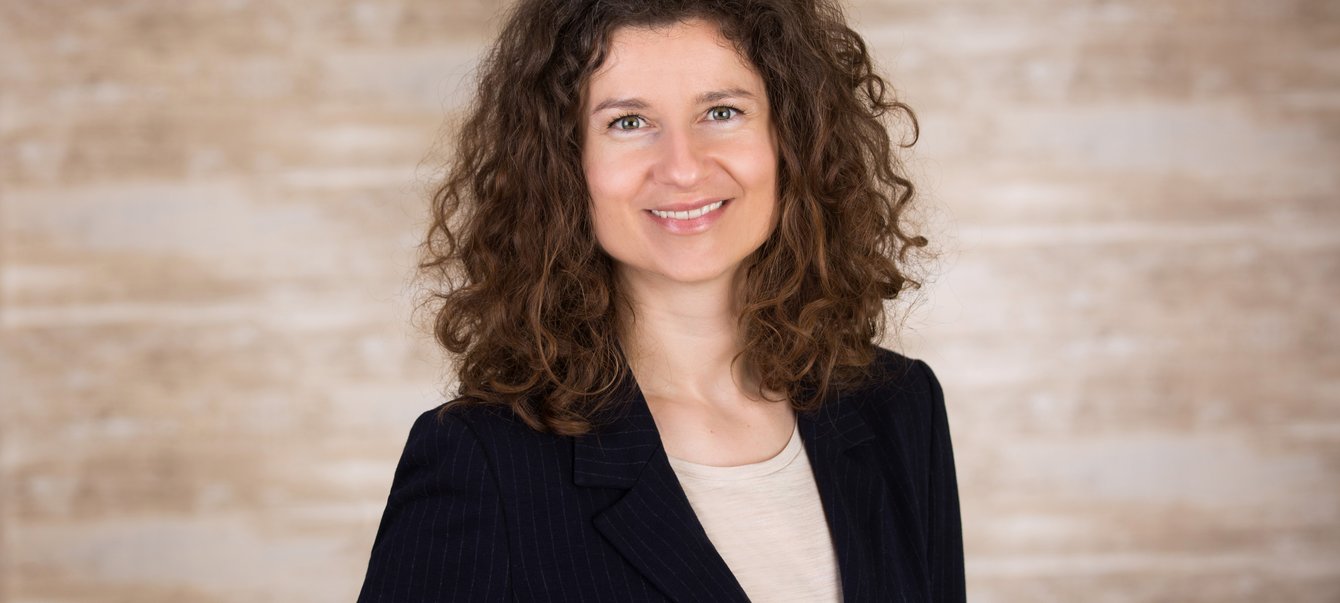
Image: © Universität Tübingen

Scientific publications
Learn more about the studies of the scientific support.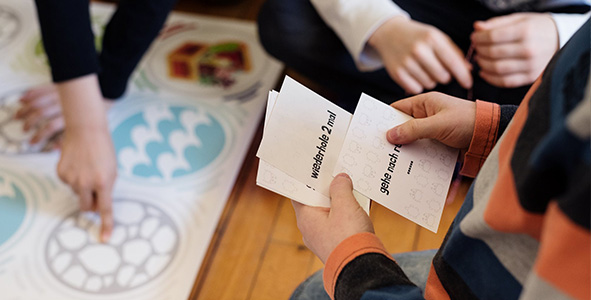
Press Releases
Here you can find all press releases of the Hector Children's Academies.
Press Review
The Hector Children's Academies in the media.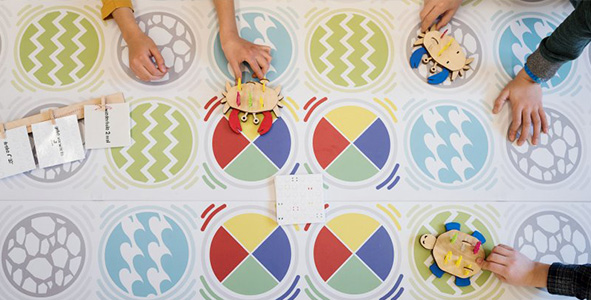
Photos and Logos
Get free photos and logos for your reporting on request.Press contact
If you have any questions about the Hector Children’s Academies, please contact the press team.
We will support your research with information, image material and the possibility of arranging interview contacts.
Scientific support of the Hector Children’s Academies
University of Tübingen
Hector Research Institute of Education Sciences and Psychology
Walter-Simon-Strasse 12
72072 Tübingen Germany
Your contact persons

Amelie Rebmann
PR officer of the Hector Children's Academies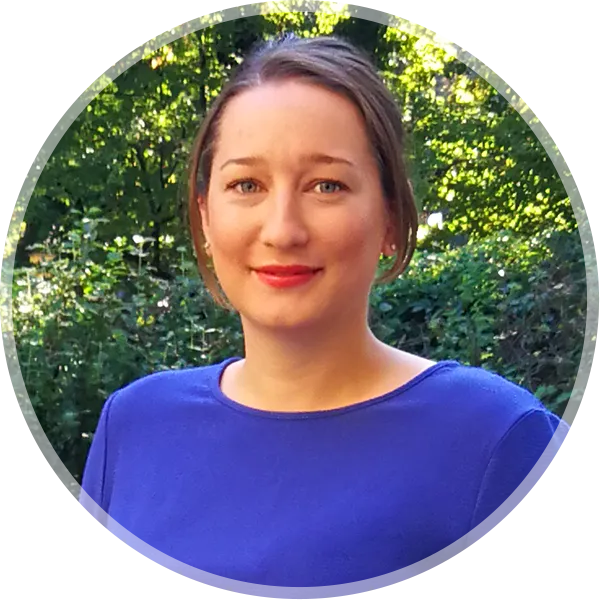
Jennifer Raffler
PR officer of the Hector Children's Academies
Ann-Kathrin Bielang
PR officer of the Hector Children's AcademiesScientific publications
Bibliography
- Beißert, H. & Hasselhorn, M. (2016). Individual Differences in Moral Development: Does Intelligence Really Affect Children’s Moral Reasoning and Moral Emotions? Frontiers in Psychology, 7. https://doi.org/10.3389/fpsyg.2016.01961
- Ehm, J. H., Lonnemann, J. & Hasselhorn, M. (2017). Wie Kinder zwischen vier und acht Jahren lernen: Psychologische Erkenntnisse und Konsequenzen für die Praxis. Kohlhammer.
- Fauth, B. & Leuders, T. (2018). Kognitive Aktivierung im Unterricht. Wirksamer Unterricht Band 2. https://ibbw-bw.de/,Lde/Startseite/Empirische-Bildungsforschung/Publikationsreihe-Wirksamer-Unterricht
- Fischer, C. (2020). Begabungsförderung, Leistungsentwicklung, Bildungsgerechtigkeit – für alle!: Beiträge aus der Begabungsförderung (Begabungsförderung: Individuelle Förderung und Inklusive Bildung) (1. Aufl.). Waxmann.
- Fischer, C., Fischer-Ontrup, C., Käpnick, F., Neuber, N., Solzbacher, C. & Zwitserlood, P. (2020). Begabungsförderung, Leistungsentwicklung, Bildungsgerechtigkeit für alle! Beiträge aus der Begabungsforschung (Begabungsförderung: Individuelle Förderung und Inklusive Bildung) (1. Aufl.). Waxmann. https://www.waxmann.com/index.php?eID=download&buchnr=4067 S.129-140
- Golle, J., Zettler, I., Rose, N., Trautwein, U., Hasselhorn, M. & Nagengast, B. (2018). Effectiveness of a “Grass Roots” Statewide Enrichment Program for Gifted Elementary School Children. Journal of Research on Educational Effectiveness, 11(3), 375–408. https://doi.org/10.1080/19345747.2017.1402396
- Herbein, E., Golle, J., Nagengast, B. & Trautwein, U. (2020). Förderung von Präsentationskompetenz: Schrittweise Implementation und Effektivitätsüberprüfung eines Präsentationstrainings für Grundschulkinder. Zeitschrift Fur Erziehungswissenschaft, 23(1). https://doi.org/10.1007/s11618-019-00923-y
- Herbein, E., Golle, J., Tibus, M., Schiefer, J., Trautwein, U. & Zettler, I. (2017). Fostering elementary school children’s public speaking skills: A randomized controlled trial. Learning and Instruction, 55, 158–168. https://doi.org/10.1016/j.learninstruc.2017.10.008
- Herbein, E., Golle, J., Tibus, M., Zettler, I. & Trautwein, U. (2018). Putting a speech training program into practice: Its implementation and effects on elementary school children’s public speaking skills and levels of speech anxiety. Contemporary Educational Psychology, 55, 176–188. https://doi.org/10.1016/j.cedpsych.2018.09.003
- Herbein, E., Göllner, R. & Golle, J. (2019). Leistungsstarke Schülerinnen und Schüler herausfordern – Spannende Aufgaben für den Regelunterricht konzipieren. Beltz Verlagsgruppe. https://content-select.com/de/portal/media/view/5cb44125-9634-4424-8e86-304fb0dd2d03
- Leifheit, L., Tsarava, K., Moeller, K., Ostermann, K., Golle, J., Trautwein, U. & Ninaus, M. (2019). Development of a Questionnaire on Self-concept, Motivational Beliefs, and Attitude Towards Programming. Workshop in Primary and Secondary Computing Education. https://doi.org/10.1145/3361721.3361730
- Neuendorf, C. & Jansen, M. (2022). Comparing different facets of the social integration of high-achieving students in their classroom: No gender stereotyping, but some nonlinear relationships. Journal of Educational Psychology. https://doi.org/10.1037/edu0000778
- Neuendorf, C., Jansen, M. F., Kuhl, P. & Vock, M. (2022). Wer ist leistungsstark? Operationalisierung von Leistungsstärke in der empirischen Bildungsforschung seit dem Jahr 2000. Zeitschrift Für Pädagogische Psychologie, 37(1–2), 1–19. https://doi.org/10.1024/1010-0652/a000343
- Preckel, F., Golle, J., Grabner, R. H., Jarvin, L., Kozbelt, A., Müllensiefen, D., Olszewski-Kubilius, P., Schneider, W., Subotnik, R. F., Vock, M. & Worrell, F. C. (2020). Talent Development in Achievement Domains: A Psychological Framework for Within- and Cross-Domain Research. Perspectives on Psychological Science, 15(3), 691–722. https://doi.org/10.1177/1745691619895030
- Rebholz, F., Golle, J. & Moeller, K. (2021). The association of basic numerical abilities and math achievement: The mediating role of visuospatial and arithmetical abilities. Quarterly Journal of Experimental Psychology, 75. https://journals.sagepub.com/doi/10.1177/17470218211040060
- Schiefer, J., Bernholt, A. & Kampa, N. (2021). A closer look at elementary school students’ epistemic beliefs – Latent profiles capturing concepts of knowledge and knowing in science. Learning and Individual Differences, 92, 102059. https://doi.org/10.1016/j.lindif.2021.102059
- Schiefer, J., Edelsbrunner, P. A., Bernholt, A., Kampa, N. & Nehring, A. (2022). Epistemic Beliefs in Science—A Systematic Integration of Evidence From Multiple Studies. Educational Psychology Review, 34(3), 1541–1575. https://doi.org/10.1007/s10648-022-09661-w
- Schiefer, J., Golle, J., Tibus, M., Herbein, E., Gindele, V., Trautwein, U. & Oschatz, K. (2020). Effects of an extracurricular science intervention on elementary school children’s epistemic beliefs: A randomized controlled trial. British Journal of Educational Psychology, 90(2), 382–402. https://doi.org/10.1111/bjep.12301
- Schiefer, J., Golle, J., Tibus, M. & Oschatz, K. (2019). Scientific reasoning in elementary school children – Assessment of the inquiry cycle. Journal of Advanced Academics, 30(2), 144–177. https://doi.org/10.1177/1932202×18825152
- Schiefer, J., Golle, J., Tibus, M., Trautwein, U. & Oschatz, K. (2017). Elementary school children’s understanding of science: The implementation of an extracurricular science intervention. Contemporary Educational Psychology, 51, 447–463. https://doi.org/10.1016/j.cedpsych.2017.09.011
- Schiefer, J., Stark, L., Gaspard, H., Wille, E., Trautwein, U. & Golle, J. (2021). Scaling up an extracurricular science intervention for elementary school students: It works, and girls benefit more from it than boys. Journal of Educational Psychology, 113(4), 784–807. https://doi.org/10.1037/edu0000630
- Trautwein, U. & Hasselhorn, M. (2017). Begabungen und Talente (Tests und Trends in der pädagogisch-psychologischen Diagnostik) (1. Auflage 2017). Hogrefe Verlag.
- Trautwein, U., Sliwka, A. & Dehmel, A. (2018). Grundlagen für einen wirksamen Unterricht. Wirksamer Unterricht Band 1. https://ibbw-bw.de/,Lde/Startseite/Empirische-Bildungsforschung/Publikationsreihe-Wirksamer-Unterricht
- Tsarava, K., Leifheit, L., Ninaus, M., Román-González, M., Butz, M. V., Golle, J., Trautwein, U. & Moeller, K. (2019). Cognitive Correlates of Computational Thinking: Evaluation of a Blended Unplugged/Plugged-In Course. Workshop in Primary and Secondary Computing Education. https://doi.org/10.1145/3361721.3361729
- Tsarava, K., Moeller, K. & Ninaus, M. (2018). Training Computational Thinking through board games: The case of Crabs & Turtles. International Journal of Serious Games, 5(2), 25–44. https://doi.org/10.17083/ijsg.v5i2.248
- Tsarava, K., Moeller, K. & Ninaus, M. (2019). Board Games for Training Computational Thinking. Proceedings of Games and Learning Alliance conference. Lecture Notes in Computer Science, 90–100. https://doi.org/10.1007/978-3-030-11548-7_9
- Golle, J., Herbein, E., & Schiefer, J. (2020). Identifikation und Förderung besonders begabter Kinder im Rahmen der Hector Kinderakademien. In C. Fischer, C. Fischer-Ontrup, F. Käpnick, N. Neuber, C. Solzbacher, & P. Zwitserlood (Hrsg.), Begabungsförderung. Leistungsentwicklung. Bildungsgerechtigkeit. Für alle! Beiträge aus der Begabungsförderung. Reihe: Begabungsförderung: Individuelle Förderung und Inklusive Bildung, Band 10 (S. 129-140). Münster [u.a.]: Waxmann. https://doi.org/10.31244/9783830990673
Press Releases
Latest press releases
- Content follows
Press Review
Latest press review
- Content follows
